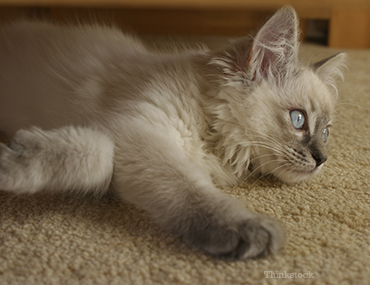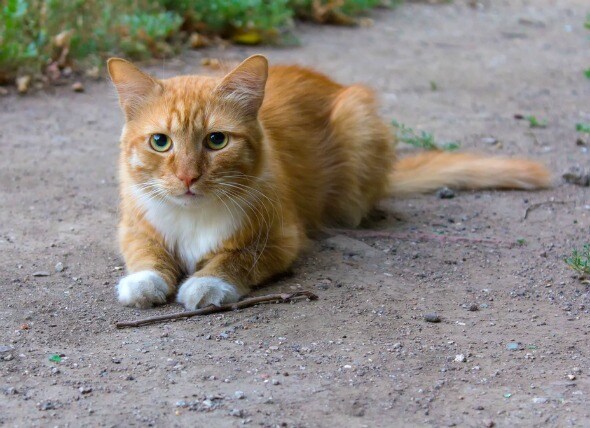Elevated Calcium in Cats
There are multiple potential causes of hypercalcemia in cats. Hypercalcemia in Dogs and Cats - Veterinary Partner - VIN Elevated calcium starts with the bones.
Id like to see the use of lactulose in cats completely eliminated frankly.

. As I said then and say now it surely isnt the ONLY cause of elevated blood calcium in senior cats but it a cat is on lactulose and is presenting with hypercalcemia the first thing I advise is stopping the lactulose. Interestingly total calcium levels are often only slightly elevated or may even be normal but the cats ionized calcium level is often quite high. Hypercalcemia or elevated blood calcium is relatively common in cats.
However other possibilities exist necessitating a thorough diagnostic investigation. Commercially manufactured cat foods have appropriate vitamin D levels so this isnt a problem if the cat is eating a typical feline diet. Excessive drinking and urination due to kidney disease polydipsia and polyuria Retinal blindness due.
What Are The Signs Of Hypercalcemia In Cats. As calcium oxalate uroliths are commonly noted in hypercalcemic cats pay close attention to the renal pelves and ureters1011 If you have any concerns about ureteral obstruction an abdominal radiographic examination may assist with calculi detection. Hypercalcaemia renee_fl Original Author 12 years ago.
If youre really concerned about the slightly elevated Ca have an ionized calcium test run. While any cancer may theoretically cause elevated blood calcium levels certain ones are over-represented particularly lymphoma multiple myeloma. Weight loss vomiting constipation.
Causes The most common cause of hypercalcemia is idiopathic IHC meaning no underlying cause can be found. The most common causes are idiopathic hypercalcemia and cancers. Your veterinarian will perform a complete physical examination of your cat and obtain a medical history from you.
High blood calcium hypercalcemia can be caused by many diseases in cats including cancer hormonal problems and excess vitamin D. They receive an inappropriate message to mobilize their calcium. Cats with neoplasia have been found to have a higher serum calcium concentration than cats with renal failure or urolithiasis however there is significant overlap.
You can read more about hypercalcaemia at the link below. In cats this is most commonly noted in associated lymphoma or squamous cell carcinoma although it has been seen with other neoplastic conditions. Hypercalcemia can be a sign of serious problems in a cat like cancer hyperparathyroidism kidney failure granulomatous diseases hypoadrenocorticism and vitamin D toxicity or it can be idiopathic no known cause or it can be just a normal fluctuation in values if its slightly elevated.
Any lesions should be aspirated or biopsied. This message is either from excess parathyroid hormone or from high amounts of parathyroid hormone-related protein. Such cats are at risk for mineralization of their soft tissues including their kidneys.
Sometimes owners will supplement their cats vitamin D intake excessively and this will cause hypercalcemia. Build up of calcium can lead to the formation of bladder stones which can result in difficulty urinating. Idiopathic hypercalcemia aka no identifiably underlying cause and cancers are the top causes.
Working with both your family veterinarian and a board-certified veterinary internal medicine. Some tests he may wish to perform include. Cats of any age can develop hypercalcemia.
Ionized calcium is simply that part of calcium in the blood that is not bound to proteins. A thorough diagnostic investigation is needed. Enjoy Fast Free Shipping On Orders 49 With 100 Satisfaction Guaranteed.
Normal total serum calcium is approximately 8-11 mgdL with significant hypercalcemia being defined as more than 105 mgdL in cats. Laurie Here is a link that might be useful. Symptomatic cats those with increased water consumption and urination loss of appetite and lethargy that have calcium concentrations greater than 15 milligrams per deciliter mgdl of blood require immediate treatment.
Ad Ensure Your Pet Is Happy And Healthy And Enjoy Savings On Pet Medications. When there are high levels of vitamin D in the blood there are often high calcium levels as well. An ionized calcium level is slightly more difficult to measure and is only readily available as a send out test or.
Help Your Pet the Natural Way. Ad Veterinarian Developed Formulas. Idiopathic hypercalcemia IHC may be the most common cause of high blood calcium in cats but the cause of the disease is currently unknown and research is underway in this area.
In one review of 427 cats with idiopathic hypercalcemia the average age being around 98 years of age long-haired cats were over-represented and both genders were equally represented. For example multiple myeloma. When present the symptoms of idiopathic hypercalcemia can include.
Loss of appetite anorexia Hiding more interacting with the family less. If the iCa comes back normal then your cat has no calcium problem. Biochemical profile which may or may not reveal high serum calcium concentrations.



No comments for "Elevated Calcium in Cats"
Post a Comment